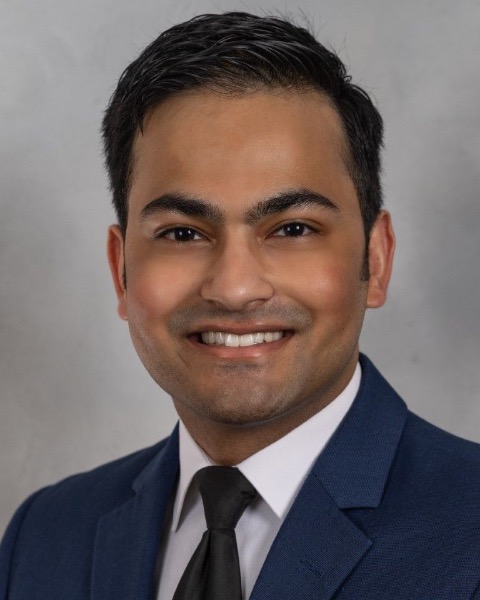Back
Poster Session E - Tuesday Afternoon
E0550 - "Hard-to-Treat HCV" - An Approach to Retreatment With Extended Duration: A Case Report
Tuesday, October 25, 2022
3:00 PM – 5:00 PM ET
Location: Crown Ballroom

Shiva S. Bongu
Wayne State University
Detroit, MI
Presenting Author(s)
Yara Dababneh, MD1, Tabassum Chowdhury, BSc2, Shiva Bongu, 2, Vivek Mendiratta, MD1, Syed-Mohammed Jafri, MD3, Stuart Gordon, MD3
1Henry Ford Hospital, Detroit, MI; 2Wayne State University, Detroit, MI; 3Henry Ford Health System, Detroit, MI
Introduction: Treatment of patients with chronic hepatitis C virus (HCV) who fail to respond to Direct Acting Antivirals (DAA) remains challenging. We present a case of DAA treatment resistant chronic HCV who responded to a prolonged 1-year long course of antiviral therapy.
Case Description/Methods:
A 71-year-old man with HCV genotype 1a and cirrhosis failed to respond to multiple courses of DAAs with subsequent complex NS3 protease domain and NS5B resistant associated substitutions (RAS). Among his previous salvage courses included glecaprevir-pibrentasivir-sofosbuvir-ribavirin (SOF/G/P) for 24 weeks (with relapse) followed by 24 weeks of sofosbuvir-velpatasvir-voxilaprevir-ribavirin (SOF/VEL/VOX) for 24 weeks (with relapse). We then elected to initiate a protracted course of antiviral therapy SOF/daclatasvir followed by SOF/velpatasvir (SOF/VEL), SOF/G/P, and SOF/VEL for a total duration of 56 weeks. Low doses of pegylated interferon (IFN) were added and low doses of ribavirin (RBV) as tolerated throughout the course of therapy.
Discussion: A small number of HCV patients still have DAA treatment failures or breakthroughs, which is considered a dilemma as these patients can remain chronically infected with HCV. According to the AASLD guidelines the use of the quad regimen of SOF/G/P and ribavirin for 24 weeks is a successful salvage regimen, which our patient failed.
Given that our patient had failed multiple courses of currently recommended therapies for re-treatment after DAA failure, there was an absence of evidence-based options to guide treatment. Our goal, based on clinical judgment, was to achieve long-term viral suppression even if this required maintaining patient on treatment indefinitely.
The patient also took IFN and RBV intermittently for the entire duration of treatment. Although there is evidence that adjuvant RBV increases the rate of Sustained Virologic Response (SVR) after DAA treatment failure, the potential beneficial role of IFN can only be speculated upon. It is also possible that some refractory cases of HCV may simply require a considerably longer span of treatment to successfully eliminate the virus.
Our patient despite a history of failing to achieve SVR, was finally able to achieve SVR12 after roughly 13 months of continuous DAAs coupled with RBV and IFN as tolerated. It is possible, therefore, that extending treatment length beyond current recommendations may be necessary to successfully induce a durable response among patients with multiple RASs and previous treatment failures.
Disclosures:
Yara Dababneh, MD1, Tabassum Chowdhury, BSc2, Shiva Bongu, 2, Vivek Mendiratta, MD1, Syed-Mohammed Jafri, MD3, Stuart Gordon, MD3. E0550 - "Hard-to-Treat HCV" - An Approach to Retreatment With Extended Duration: A Case Report, ACG 2022 Annual Scientific Meeting Abstracts. Charlotte, NC: American College of Gastroenterology.
1Henry Ford Hospital, Detroit, MI; 2Wayne State University, Detroit, MI; 3Henry Ford Health System, Detroit, MI
Introduction: Treatment of patients with chronic hepatitis C virus (HCV) who fail to respond to Direct Acting Antivirals (DAA) remains challenging. We present a case of DAA treatment resistant chronic HCV who responded to a prolonged 1-year long course of antiviral therapy.
Case Description/Methods:
A 71-year-old man with HCV genotype 1a and cirrhosis failed to respond to multiple courses of DAAs with subsequent complex NS3 protease domain and NS5B resistant associated substitutions (RAS). Among his previous salvage courses included glecaprevir-pibrentasivir-sofosbuvir-ribavirin (SOF/G/P) for 24 weeks (with relapse) followed by 24 weeks of sofosbuvir-velpatasvir-voxilaprevir-ribavirin (SOF/VEL/VOX) for 24 weeks (with relapse). We then elected to initiate a protracted course of antiviral therapy SOF/daclatasvir followed by SOF/velpatasvir (SOF/VEL), SOF/G/P, and SOF/VEL for a total duration of 56 weeks. Low doses of pegylated interferon (IFN) were added and low doses of ribavirin (RBV) as tolerated throughout the course of therapy.
Discussion: A small number of HCV patients still have DAA treatment failures or breakthroughs, which is considered a dilemma as these patients can remain chronically infected with HCV. According to the AASLD guidelines the use of the quad regimen of SOF/G/P and ribavirin for 24 weeks is a successful salvage regimen, which our patient failed.
Given that our patient had failed multiple courses of currently recommended therapies for re-treatment after DAA failure, there was an absence of evidence-based options to guide treatment. Our goal, based on clinical judgment, was to achieve long-term viral suppression even if this required maintaining patient on treatment indefinitely.
The patient also took IFN and RBV intermittently for the entire duration of treatment. Although there is evidence that adjuvant RBV increases the rate of Sustained Virologic Response (SVR) after DAA treatment failure, the potential beneficial role of IFN can only be speculated upon. It is also possible that some refractory cases of HCV may simply require a considerably longer span of treatment to successfully eliminate the virus.
Our patient despite a history of failing to achieve SVR, was finally able to achieve SVR12 after roughly 13 months of continuous DAAs coupled with RBV and IFN as tolerated. It is possible, therefore, that extending treatment length beyond current recommendations may be necessary to successfully induce a durable response among patients with multiple RASs and previous treatment failures.
Disclosures:
Yara Dababneh indicated no relevant financial relationships.
Tabassum Chowdhury indicated no relevant financial relationships.
Shiva Bongu indicated no relevant financial relationships.
Vivek Mendiratta indicated no relevant financial relationships.
Syed-Mohammed Jafri indicated no relevant financial relationships.
Stuart Gordon indicated no relevant financial relationships.
Yara Dababneh, MD1, Tabassum Chowdhury, BSc2, Shiva Bongu, 2, Vivek Mendiratta, MD1, Syed-Mohammed Jafri, MD3, Stuart Gordon, MD3. E0550 - "Hard-to-Treat HCV" - An Approach to Retreatment With Extended Duration: A Case Report, ACG 2022 Annual Scientific Meeting Abstracts. Charlotte, NC: American College of Gastroenterology.
